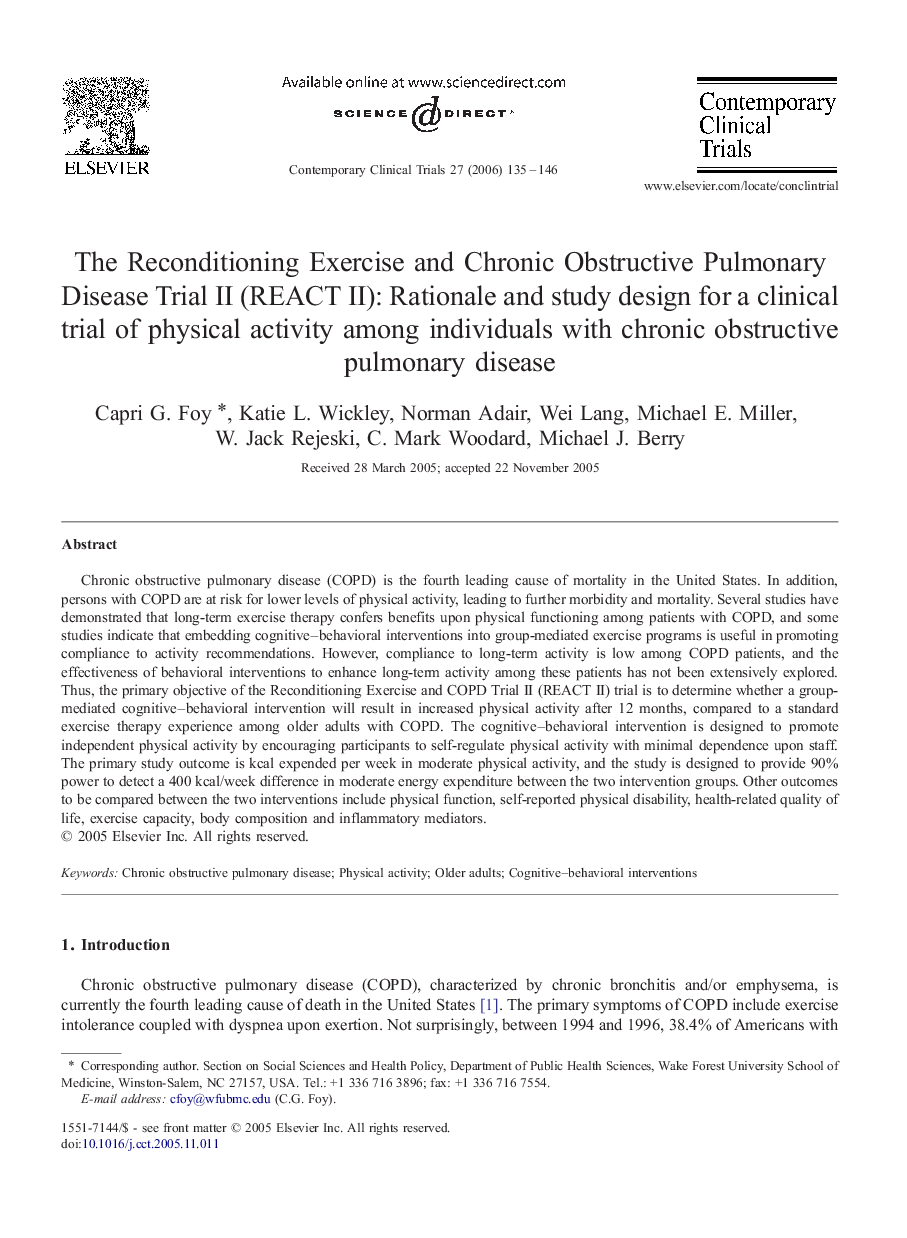| کد مقاله | کد نشریه | سال انتشار | مقاله انگلیسی | نسخه تمام متن |
|---|---|---|---|---|
| 3463514 | 1231562 | 2006 | 12 صفحه PDF | دانلود رایگان |

Chronic obstructive pulmonary disease (COPD) is the fourth leading cause of mortality in the United States. In addition, persons with COPD are at risk for lower levels of physical activity, leading to further morbidity and mortality. Several studies have demonstrated that long-term exercise therapy confers benefits upon physical functioning among patients with COPD, and some studies indicate that embedding cognitive–behavioral interventions into group-mediated exercise programs is useful in promoting compliance to activity recommendations. However, compliance to long-term activity is low among COPD patients, and the effectiveness of behavioral interventions to enhance long-term activity among these patients has not been extensively explored. Thus, the primary objective of the Reconditioning Exercise and COPD Trial II (REACT II) trial is to determine whether a group-mediated cognitive–behavioral intervention will result in increased physical activity after 12 months, compared to a standard exercise therapy experience among older adults with COPD. The cognitive–behavioral intervention is designed to promote independent physical activity by encouraging participants to self-regulate physical activity with minimal dependence upon staff. The primary study outcome is kcal expended per week in moderate physical activity, and the study is designed to provide 90% power to detect a 400 kcal/week difference in moderate energy expenditure between the two intervention groups. Other outcomes to be compared between the two interventions include physical function, self-reported physical disability, health-related quality of life, exercise capacity, body composition and inflammatory mediators.
Journal: Contemporary Clinical Trials - Volume 27, Issue 2, April 2006, Pages 135–146